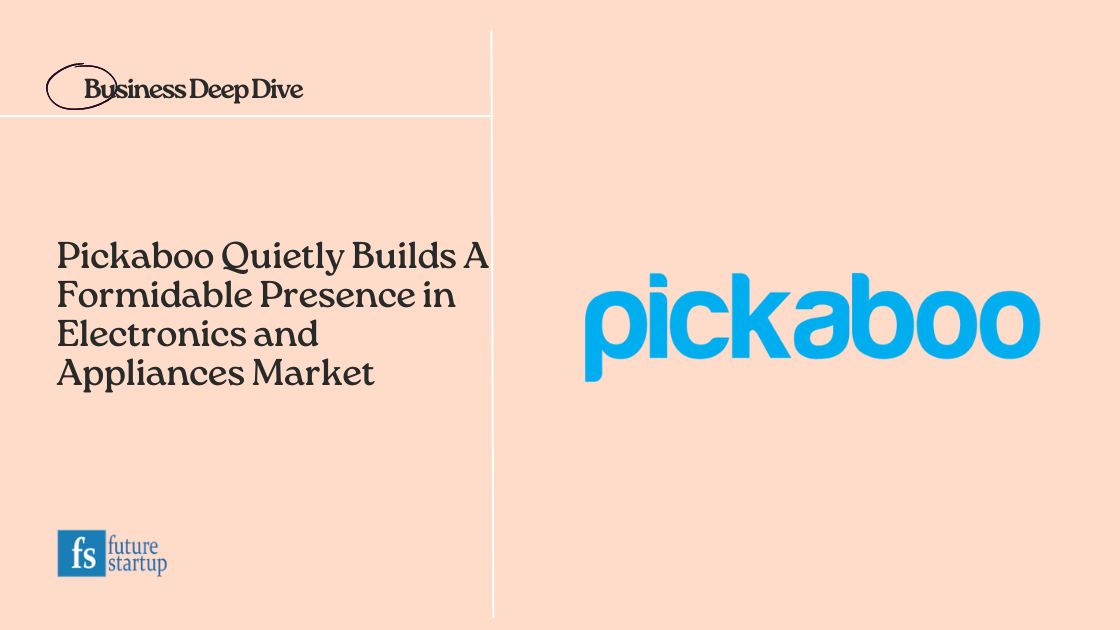
In the world of consumer tech, brand leverage is everything. Building a strong brand takes relentless focus and commitment over many years. The best companies start by dominating a relatively narrow niche before considering expansion into near adjacent markets. This playbook equally applies to digital platforms. Start in a niche. Serve your customers well. Build a strong market position. Expand to near adjacent verticals.
That's exactly the playbook that Pickaboo, the Dhaka-based omnichannel ecommerce company, has been trying to put to work. Founded in 2016, Pickaboo started out focused squarely on the mobile phone and gadgets vertical. It took them several years and several missteps to establish themselves as one of the premier destinations for these product categories through an obsessive focus on customer experience, logistics, and operational excellence.
Once it had cemented its position in mobile and gadgets, Pickaboo turned its attention to the adjacent consumer electronics and appliances market early this year. And the company has quietly built out a formidable presence in this new vertical.
According to a company source, electronics accounts for over 50% of the company's total business volume, just six months after entering the category. That's an incredibly rapid ramp for such a large new product line in an established business. Mobile and gadgets remain the key focus for the company but it sees consumer electronics as a higher-value business.
So how did Pickaboo pull this off? The answer lies in the company's strategic focus and brand leverage.
By restricting itself to one core vertical for its first seven years, Pickaboo built a strong brand reputation for quality and reliability in the mobile/gadgets space. As a customer, once you associate a brand with a particular set of product categories, that brand automatically carries meaningful credibility when it expands into adjacent markets.
When existing Pickaboo customers went looking to purchase electronics products online, the decision to choose Pickaboo over competitors was a no-brainer. The company had already earned their trust over years of consistently delivering an exceptional customer experience in mobile/gadgets. It was simply a matter of extending that same brand promise and operational capabilities into a new vertical.
This is brand and platform leverage in action. It enabled Pickaboo to hit the ground running in electronics by leveraging its existing strengths rather than having to build an entirely new customer base and brand identity from scratch.
The move also took advantage of built-in bundling opportunities across categories. A customer looking to purchase a mobile phone from Pickaboo could easily add electronics accessories or appliances to their cart in the same transaction. This made Pickaboo an obvious one-stop-shop destination for all their electronics needs instead of being siloed into one vertical.
Moreover, the timing has been good for Pickaboo. Dhaka is suffering from extreme hot weather this year, skyrocketing the demand for products like air conditioners and refrigerators, etc.
However, brand equity and having a platform alone is rarely enough. Pickaboo also brought to bear its operational expertise capabilities in setting up the new electronics vertical.
Having optimized its supply chain, logistics, distribution, after-sales support and other functions over seven years for mobile/gadgets, Pickaboo had ready-made systems and processes that it could apply to electronics with very little friction or reinvention required. Leveraging existing assets and economies of scale enabled the new vertical to be operationally efficient from day one. Pickaboo's online-offline dual presence also worked to its advantage..
In many ways, Pickaboo's success in consumer electronics highlights the growing importance of ecosystems in tech. Once a platform has earned the trust and locked in users for one set of services or product lines, it becomes easier for that platform to launch adjacent offerings while facing lower user resistance.
This is a playbook that many successful tech companies applied over the years. Companies like ShopUp or now several digital healthcare startups have been using the thesis in Bangladesh. Having user loyalty in core verticals, it allows you to steadily expand into near adjacent domains that your existing user base readily adopts.
Pickaboo is executing the very same playbook. Its mobile/gadget user base has paved the way for a smooth transition into consumer electronics.
However, while expanding to near adjacent markets appears lucrative and a tested strategy, it comes with its own challenges. Any expansion is a function of hypothesis, trade-offs, resource allocation, and execution. In theory, it makes sense to assume that the customer who buys a mobile phone from you will also happily buy an electronics product from you. But when you get to execution it comes with its own challenges. These are near adjacent but not the same products. The execution and logistical questions are different. Similarly, in many instances, you run the risk of expanding early—premature expansion.
For Pickaboo, the timing appears to be right given that it has been operating a single category-focused operation for some years now and has built a market position in that category. Still, how Pickaboo addresses the emerging challenge of a new vertical will determine a lot of its successes and failures. We will be closely following Pickaboo as the company makes further strategic moves on its way to its stated ambition to “become the preeminent electronics and consumer tech destination for Bangladesh.”
